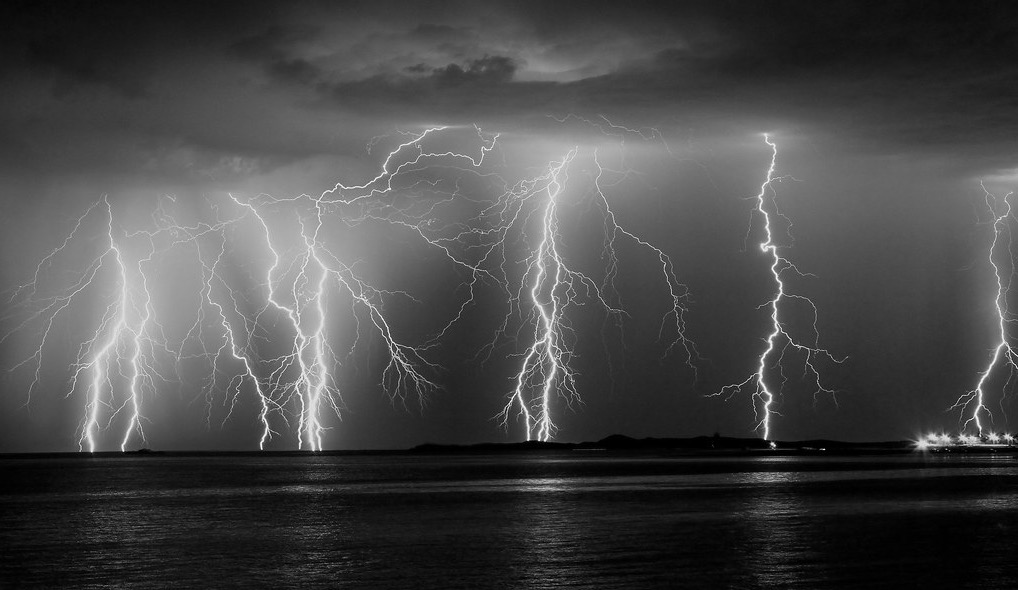
And when the seven thunders had sounded, I was about to write, but I heard a voice from heaven saying, “Seal up what the seven thunders have said, and do not write it down.”
Revelation 10:4
Dealing with a god can be notoriously tricky. No matter how many cards you hold, the god always seems to have one more tucked up his sleeve. Apollo, the Greek god of prophecy, was especially cagey. One story tells of the Cumaean Sibyl, a prophetess and favorite of the god. Apollo offers the Sibyl a wish, and she asks to live for as many years as the number of grains of sand that she can hold in her hand. She forgets, however, to ask for eternal youth. Apollo (for once playing the literalist) grants her wish. Unfortunately, as she ages, her body withers to a detestable husk. When she is asked what she desires most in her old age, she replies, “I want to die.”
Apollo could be downright vindictive too. To win the favor of the beautiful Cassandra, he grants her the ability to see the future. But when she later spurns him, he curses her so that no one will believe her predictions. This had disastrous consequences. Cassandra’s prophecies foretell the fall of Troy to the Greeks—which nobody heeds, and in the process she herself is captured and killed. She didn’t even get the meager satisfaction of an “I told you so.”
There is no job as fraught with peril and frustration quite like that of the prophet. The biblical prophets had more headaches than even their mythological counterparts. Ostracism, persecution, and retribution were part and parcel of the prophet’s experience. If that weren’t bad enough, the task sometimes required outlandish antics which stretched the prophet’s compliance to the breaking point. This is not to mention the sheer terror of being employed by a deity who often was not in the best of moods.

Of course, there are certain perks that come with prophethood. One is a measured approval from your employer, which, it might be noted, appears somewhat dependent on job performance. As long as you’re doing what you’re told, you get to keep your camel hair suit. Another perk is an uneasy courtesy from the few who recognize your shiny badge. You’re not likely to be invited to the neighborhood kegger, but they’ll respectfully quiet down as you walk by to pick up your mail.
The biggest prophetic perk is access to inside information. The prophet often knows what’s coming down before it comes down. As Amos tells us, “The Lord God does nothing without revealing his secret to his servants the prophets.” This privilege comes with status. The prophet gets to be the distributor of esoteric knowledge. Others will hold you in mild awe as you offer nuggets dug from mines deeper than they can plumb. Granted, most of them won’t actually listen to you; it’s more a matter of entertainment. You’re a song and dance man. Even so, a little applause is kind of nice.
Things get interesting when the prophet becomes privy to things that he cannot share. Sometimes it’s merely a translation issue: there simply are no words to convey the experience. Peter, for example, speaks of a joy inexpressible, and Paul tells us that the Spirit intercedes for us with groans that cannot be uttered. Even Jesus struggled to find ways to communicate spiritual realities. “What is the kingdom of God like?” he asked. “What shall I compare it to?” The fact that he once settled on a mustard seed to make his case gives you an idea of how challenging it can be. One can only imagine how much confusion might have been prevented if, instead of describing his wheels within wheels, Ezekiel had just shrugged and called it a day. Sometimes a picture is worth no words at all.
Then there are those things revealed to the prophet that come without the necessary access key. As in the case of Daniel, sometimes the meaning of a vision is withheld. “Go your way, Daniel, for the words are shut up and sealed until the time of the end.” Daniel is shown the cards but not what the game is. In such cases the prophet may feel as clueless as the non-prophet gallery. Among other things, this situation makes it difficult to write an effective newsletter.

But the big ticket conundrum is when the prophet learns something that he is expressly forbidden to disclose. An event of John’s revelation is a most tantalizing instance. John beholds a mighty angel who straddles both land and sea. The angel loudly calls out and is answered by what John refers to as the seven thunders. John prepares to record what the seven thunders said but hears a voice from heaven command, “Seal up what the seven thunders have said, and do not write it down.” Clearly, John understood what the thunders said (or he wouldn’t have attempted to write it down) but he was ordered not to. The prohibition comes without explanation, and the cosmic vision moves on without pause. The seven thunders—and what they said—are never referred to again. What happens in Vegas, stays in Vegas.
Perhaps that’s all there is to it. Apparently, whatever the thunders said is unessential for us to know in order to overcome at the end. Maybe the thunders gave utterance to the wordless cry of the angel. Maybe their voices set in motion some vital mechanism that operates far beneath the surfaces of judgment, not unlike the inner-workings of a watch or the invisible lines of code that bring these very words to your eyes. Perhaps we will never know.
I wonder, though. Among the many unimaginable things that John beheld in his vision on the island of Patmos, I wonder if he ever brooded over what the seven thunders said. I wonder if he regretted not being allowed to write it down, knowing that this knowledge would pass from the world with him. And I wonder, too, if I could ever be trusted to keep such a secret.

